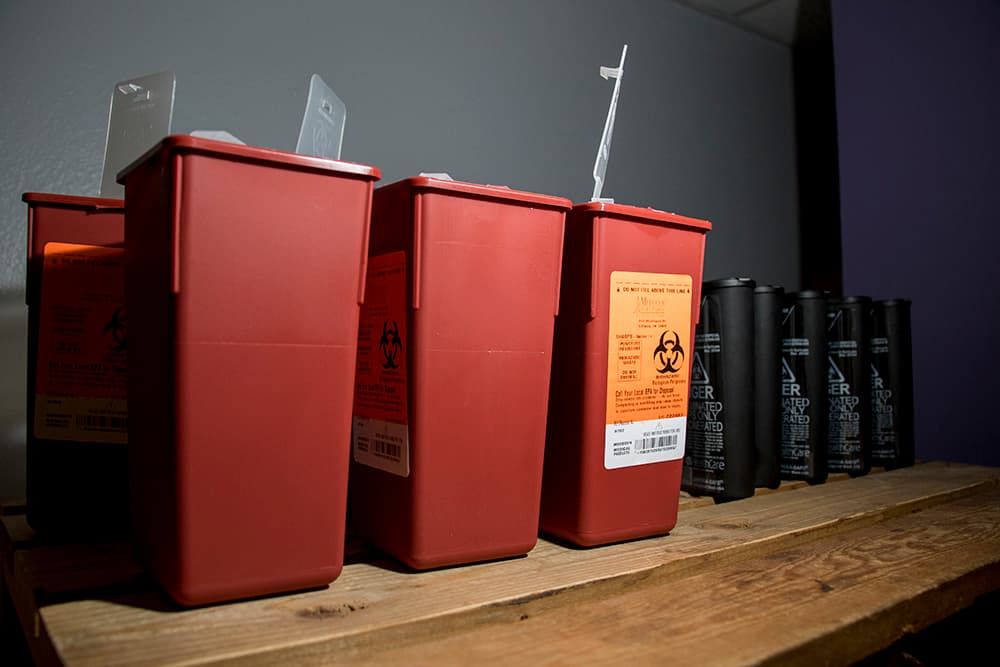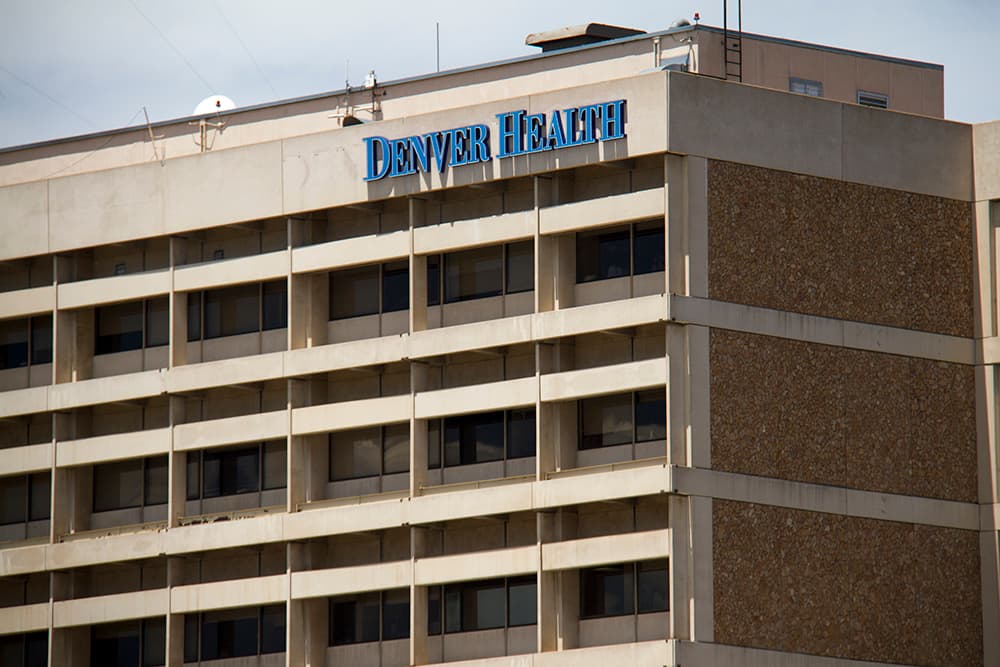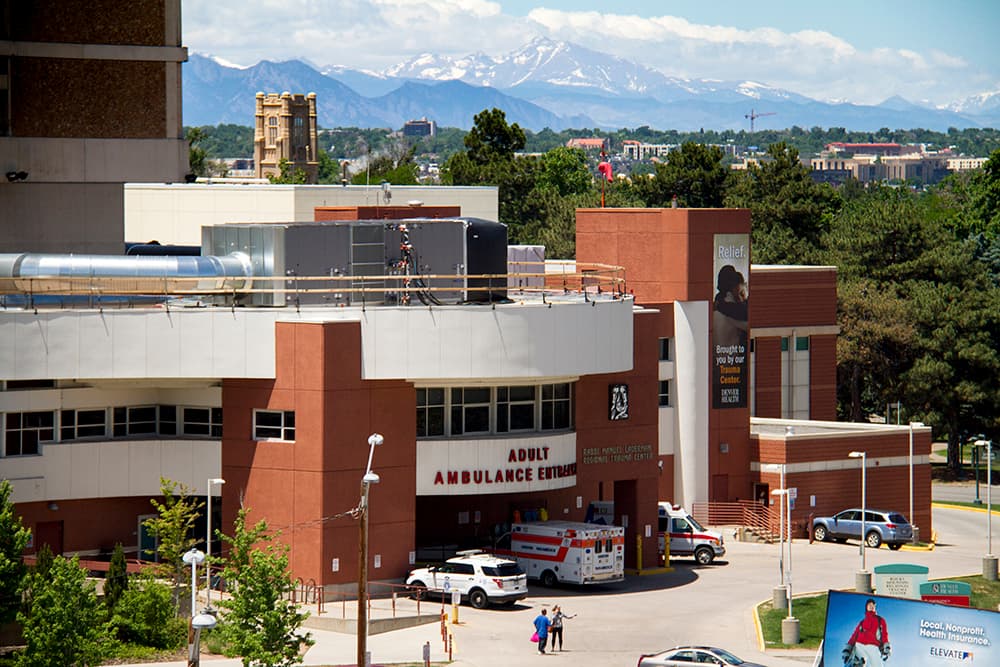When Denver substance use resource coordinator Marion Rorke started speaking to drug users for a strategic plan the city was developing, the people she spoke to sought to take things back to basics.
Eye contact when others walked by them, they said, would be a good start.
"I would ask them, if people could get one thing out of this assessment, what would it be? And they're like, 'To realize that I'm a human being,'" Rorke said.
Rorke, who works in the Community Health Division at the Denver Department of Public Health & Environment, helped craft a 25-page plan providing a blueprint to addressing opioid use in Denver. The five-year plan was released jointly by Denver Mayor Michael Hancock’s office and the city's public health department last month.
"There is no discrimination or protection from a problem like this. Whether you live in the largest mansion or you don’t have a place to call home, rich or poor, young or old; we are all vulnerable to addiction," Hancock said in a letter attached to the plan.
The process for the plan started in May 2017. Around the same time, Rorke said they started developing a needs assessment primarily for people who were using heroin about their own experiences trying to get treatment for substance use in Denver.
“So that helped to kind of provide a base, so to speak, for the strategic plan,” she said. “Over the past year, we’ve had meetings with numerous stakeholders, everyone from treatment, law enforcement, prevention agencies, harm-reduction agencies, to really get together and really figure out first, what our vision was for this, and then, how we can move forward,”
The plan focuses on three overarching goals: Prevent substance misuse, improve access to treatment and retention, and reduce harm. Under each one of those goals, there are additional strategies for how to achieve the goals.
Among the first service to come from the plan is launching a treatment on demand pilot program.
The city is hoping this ends up being a big first step for people seeking treatment for substance use disorders — a launch pad for treatment. Partnering with Denver Health, the idea will be to make it as easy as possible for someone to start treatment by providing a 24-hour intake location at the hospital.
“If somebody wants treatment, and they say hey, I want treatment right now, they should be able to start that process,” Rorke said. “We were having a lot of people say, ‘I want treatment, I can’t get in,’ and treatment providers saying, ‘I don’t know what you’re talking about, we have tons of space.’”
Rorke and her colleagues learned that the lengthy intake process was stopping people from trying to start treatment. Rorke said people told them the up to four-hour-long intake process and would require certain staff at some treatment facilities.
“So if someone decides at 8 p.m. on a Tuesday that they’re ready for treatment, they might not be able to get in for three, five days (or) two weeks, depending on the facility that they’re looking at,” Rorke said.
“If someone is ready for treatment, and you’re like, ‘Come back in three days,’ they might not be in that spot anymore,” Rorke added.

The city and hospital will also partner with other local treatment providers for people requiring additional services. From the intake at Denver Health, people could then be referred to partnering treatment centers.
Lisa Gawenus, Director of Outpatient behavioral health services at Denver Health, was involved in the group that helped develop the plan. She said Denver's public health department has recognized that the community has to respond to the opioid crisis.
"I think they have been very good supporters of our healthcare system. We have a desire to make Denver the healthiest city in the nation," Gawenus said.
Lisa Straight, division director at Community Health, Hancock set aside $500,000 in the 2018 fiscal year for some pre-planning, which she said is also helping pay for the treatment on demand center. She said overall, they would need about $2- to 5-million overall to support the entire plan. They’re additionally seeking grants and money from private donors to pay for the plan. Gawenus added that the pilot program is funded for an initial 18-month period.
At the moment, they’re not totally sure how many people would potentially use the on-demand service.
But they’re expecting it could draw people from outside the Metro Area and transient residents as well.
“One of the goals of opening the induction center is to see, are we going to have a line out the door or is it going to be just a few people here and there? So we really need to determine how many people will come here,” Straight said.
Rorke said they’re hoping to launch this service by the end of the year. The pilot program will result in new staff hires at Denver Health; Gawenus said the hospital could hire as many as four new licensed clinical social workers.
Straight said they will work with their partners in Denver, including two needle exchange programs, and hope for some word-of-mouth to help spread the word about the pilot program. The latter could be especially important.
“Most people, especially people experiencing homelessness and who inject drugs, a lot of, it is word of mouth,” Rorke said. “You find out who to trust and where to go based on what the people and your peers around you tell you.”

Gawenus said the hospital has already provided inductions for buprenorphine, a medication used for opioid dependency. But the pilot program won't just provide a prescription and send someone home. Gawenus said it will provide recommendations for additional treatment options by screening and evaluating patients, providing what Gawenus called is "comprehensive bio-psycho-social assessment."
Patients can then be referred to partnering clinics.
“I think it’s important to spell out that we have to partner clinics, Behavioral Health Group and Denver Recovery Group, working with them to provide treatment options for people and continuation," Gawenus said.
During the course of their assessment, Rorke said they found most people who are using substances are using more than one.
Often time, Rorke said people had a drug of choice. But that doesn’t really seem to be the case anymore, especially when looking at overdose deaths in Denver. Rorke said more than 70 percent of the 201 fatal overdoses in Denver last year involved three or more substances.
Figures from the Colorado Department of Public Health & Environment, Vital Statistics Program, show at least 110 of the 201 overdose deaths in Denver involved opioids. Overall, Colorado had 1,012 drug overdose deaths in 2017. At least 560 involved opioids, according to the state's figures.
Another common substance involved in fatal overdoses was methamphetamine, Rorke said. In addition to heroin, other opioids like prescription drugs also contributed to the fatal overdoses.
“It really made us realize that we have to focus on this as a broader issue and not just, while we are focused on opioids specifically right now, we need to also have in mind the other substances and how those can impact folks as well," Rorke said
The plan acknowledges that not everyone is ready for treatment. So it tries to offer other services, too.
This includes harm reduction, which Straight said includes providing needle exchanges, wound care, assistance with finding housing and even helping people obtain ID cards. Straight said the plan doesn’t just focus on users seeking treatment. It focuses on helping people in recovery as well.
There are other factors in play that can limit a person’s ability to get treatment. Straight said these included transportation and housing as other big hurdles. And, as Rorke pointed out, the stigma remains a barrier.
"This is about behavioral health in general," Rorke said. "Not just substance use, but mental health. There's just so much stigma associated with people who use drugs and people who have mental health issues. So that really prevents people from trying to access services, because they're looked at as less than."
Rorke said the intake centers will help provide treatment based on individual needs.
“Another part of the strategic plans is we can start connecting to people who are experiencing substance use disorder, we connect with them,” Straight said. “Maybe they’re not ready for treatment that day, but we can get more resources and the more they come to connect with us, hopefully, one day, they’ll be ready for treatment."













